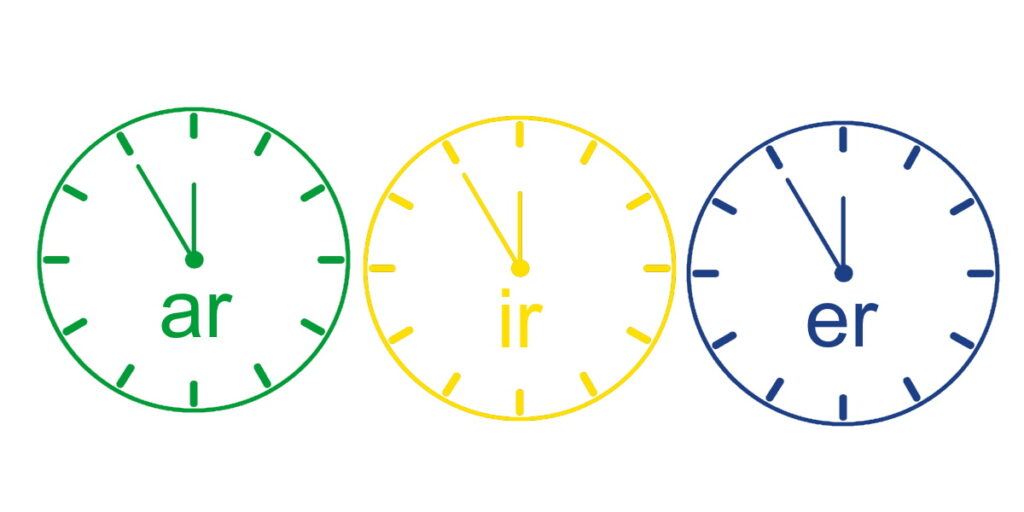This page offers a guide to conjugating regular verbs in the present tense in Brazilian Portuguese.
When I was at school, we were told that verbs are ‘doing’ words, which describe an action (e.g. she ran away), however, verbs can also express mental actions (e.g. to think) as well as states of being (e.g. to be).
Conjugation in Brazilian Portuguese
A regular verb is a verb that follows a general rule of conjugation.
So what is conjugation? Conjugation alters verbs to tell us who is doing an action and when the action takes place, helping to give a sentence greater clarity and meaning. For example, in English, conjugation changes the basic form of the verb to speak (also known as the infinitive), into I speak, he speaks, we speak, etc, depending on who is doing the action.
Conjugating regular ar, er and ir verbs in Brazilian Portuguese

Most verbs in Portuguese are regular, which means that they end in ar, ir, or er and follow general patterns of conjugation. Although these rules apply to most verbs, there are also many irregular verbs in Brazilian Portuguese, which I will cover in a future post.
So how are the ar, ir and er regular verbs conjugated in the present tense in Brazilian Portuguese? Conjugation matches the pronoun in the sentence (i.e. I, you, we, etc) with the verb. To conjugate a regular verb in Brazilian Portuguese, you retain the ‘stem’ of the verb, but remove the last two letters (i.e. ar, ir, or er), replacing these with the endings that correspond to the person doing the action as shown in the tables below.
Endings for regular ar verbs:
| English pronoun | Portuguese pronoun | Verb ending | Example (comprar – to buy) |
| I | eu | o | eu compro |
| you | você | a | você compra |
| he/she | ele/ela | a | ele/ela compra |
| we | nós | amos | nós compramos |
| they | eles/elas | am | eles/elas compram |
Endings for regular er verbs:
| English pronoun | Portuguese pronoun | Verb ending | Example (vender – to sell) |
| I | eu | o | eu vendo |
| you | você | e | você vende |
| he/she | ele/ela | e | ele/ela vende |
| we | nós | emos | nós vendemos |
| they | eles/elas | em | eles/elas vendem |
Endings for regular ir verbs:
| English pronoun | Portuguese pronoun | Verb ending | Example (dividir – to share) |
| I | eu | o | eu divido |
| you | você | e | você divide |
| he/she | ele/ela | e | ele/ela divide |
| we | nós | emos | nós dividimos |
| they | eles/elas | em | eles/elas dividem |
Hint: the 1st person singular (eu) always ends in –o.
How to make a verb negative in Brazilian Portuguese
To make sentences negative, simply put não in front of the verb e.g. eu não divido (I don’t share)
| 👈 Previous page | Next page 👉 |
| Conjunctions (connector words) | Common regular verbs |
